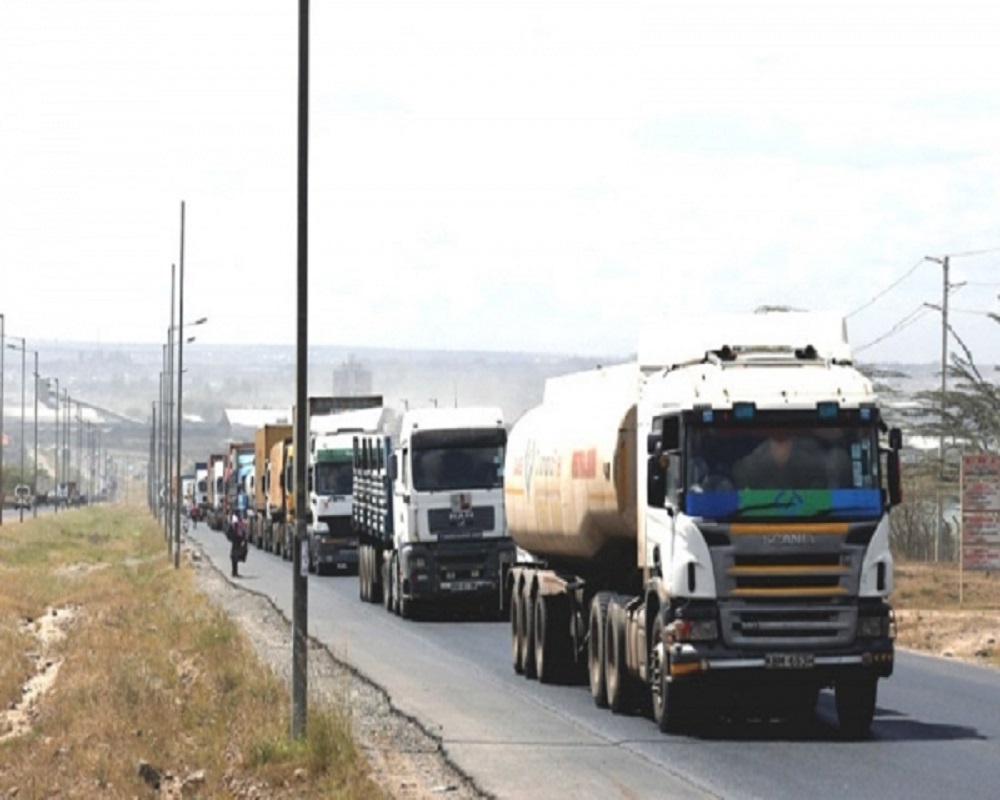Faced with a post-election crisis marked by security disruptions, violence, and the closure of travel agencies, the Cameroonian road transport sector has been severely impacted. Slowdowns in trade, price increases, and a decline in the distribution of goods have hampered economic growth. The Cameroonian government is implementing emergency measures to overcome this stagnation and revive economic activity by streamlining the transport of goods and people. During a meeting with stakeholders in the transport sector on November 4, 2025, the Minister of Transport reassured them of the effective resumption of activities on the road network.
For several days, the movement of goods and passengers has experienced significant slowdowns on certain corridors. These disruptions, linked to various security and administrative factors, have had a direct impact on market supplies, leading to price increases and a decrease in distribution volumes in several regions. The post-election crisis exacerbated these difficulties, particularly with the closure of travel agencies, which deprived many people of their travel options, thus further paralyzing the transport sector.

Economic operators reported a temporary stagnation in activity, aggravated by slow procedures, traffic jams at checkpoints, and difficulties accessing certain consumer areas. Faced with this situation, the Government decided to intensify its efforts to streamline road transport operations and restore the normal flow of goods and people.
Transporters are calling for a reduction in road harassment and taxes.
During the meeting, transporters expressed their concerns and formulated several proposals to improve the business climate in the sector. They specifically requested a reduction in road harassment and a decrease in taxes deemed too high on certain road sections, arguing that these constraints hinder the transport of goods and increase the cost of products on the market. Participants also advocated for better harmonization of on-the-ground controls to avoid the numerous stops that slow traffic and hinder the competitiveness of Cameroonian transporters on regional corridors.
1-Securing the corridors and protecting the supply chain
The Government’s first area of intervention concerns security. Joint patrols will be reinforced on the main road and rail routes to protect convoys. An escort system for intercity transport will also be implemented, as will increased surveillance of petroleum product storage sites. Local vigilance committees will be mobilized to support security forces and provide on-the-ground information, with the aim of preventing any disruption to industrial and commercial activities.
2-Reducing administrative burdens to accelerate flows
The second area focuses on simplifying logistical and administrative procedures. Non-essential checks at weigh stations will be reduced, and incentives will be adopted to expedite the removal of goods from ports. These reforms aim to reduce waiting times, decongest transit corridors, and stimulate the recovery of domestic and foreign trade, an essential condition for economic recovery.
3-Better coordination of actions for operational efficiency
To restore the smooth flow of trade, the Government is now advocating for strengthened inter-institutional coordination. Grouped freight convoys will be prioritized, as will rail transport of livestock to urban centers. Furthermore, sales campaigns for essential consumer goods will be organized to stabilize prices and ensure the supply of goods to the population. Control teams will also be deployed to combat speculation and illicit business practices, which are responsible for market imbalances.
4-Communication, transparency, and collective mobilization
The Minister of Transport emphasized the need for constant communication with unions and stakeholders in the sector. Carriers will be informed in real time of the security measures deployed and the possible escorts provided by law enforcement on sensitive routes.
“The Government remains fully committed to ensuring the continuity of economic activities and the security of trade throughout the country,” reassured Jean Ernest Masséna NGALLÈ BIBEHÈ. He also appealed to civic responsibility and Collective responsibility, emphasizing that the effective resumption of activities depends on the cooperation of all stakeholders.
Through these measures and by listening to the sector’s concerns, the Government is sending a clear signal: the stagnation of economic activity is not inevitable. By acting simultaneously on security, logistics, fiscal, and administrative fronts, the authorities intend to restore confidence, ensure the smooth flow of road transport, and revitalize the national economy.





